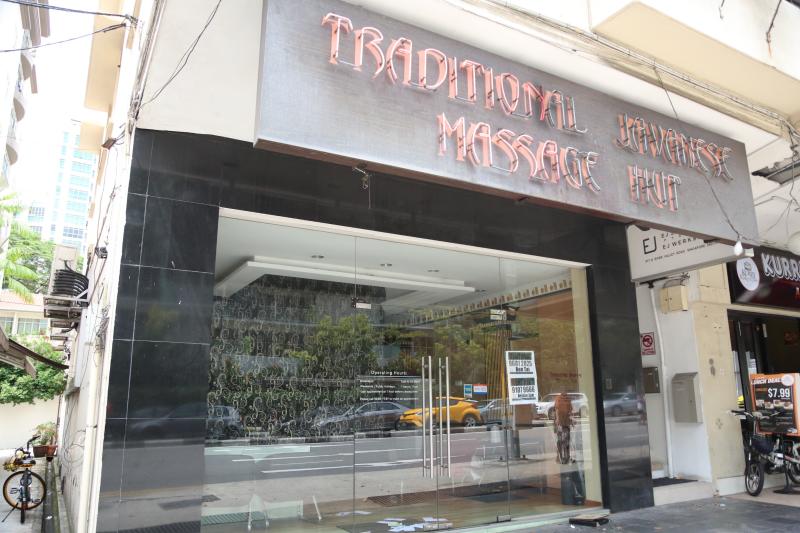Beauty industry tops 2018 consumer complaints: Case
Car industry drops to second while transport grouses go up tenfold due to oBike closure
Sign up now: Get ST's newsletters delivered to your inbox

The sudden closure of the Traditional Javanese Massage Hut chain saw consumers losing nearly $200,000 in prepaid unutilised sessions.
PHOTO: LIANHE WANBAO
Tiffany Fumiko Tay
Follow topic:
The beauty industry was the biggest source of consumer complaints last year, knocking the car industry off the top spot for the first time since 2012.
Grouses about the transport industry went up tenfold due to the closure of bike-sharing firm oBike, while complaints relating to e-commerce have also been on the rise, the Consumers Association of Singapore (Case) said yesterday.
The consumer watchdog received a total of 16,090 complaints last year. About seven in 10 of those negotiated or mediated by Case were resolved, with more than $2.73 million in cash and in-kind recovered.
There were 1,829 complaints lodged against the beauty industry, a 31 per cent increase from 2017.
Nearly half of these were related to the loss of prepayments due to abrupt business closures and aggressive sales tactics, Case said.
The sudden closure of the Traditional Javanese Massage Hut chain, for example, saw consumers losing nearly $200,000 in prepaid unutilised sessions.
However, consumers who had prepaid for massage packages at its River Valley outlet, which was accredited under the CaseTrust Spa and Wellness scheme, received a payout from the prepayment insurance for their unused sessions.
Aggressive sales tactics remained an industry problem, Case said.
In one instance, a salesman had promoted a beauty treatment to a customer at $28, only to raise the price to $150 during treatment.
The customer was made to sign an invoice while in a state of partial undress, which she later realised was for a package costing $2,800.
Mr Edward Wong, president of the Spa and Wellness Association Singapore, which has about 400 members, said business pressures and an influx of smaller players are likely behind the rise in complaints against the beauty industry.
More newcomers have entered the scene in recent years, including those that want to make a fast buck and are not following the rules, Mr Wong said.
The beauty sector, which is heavily reliant on foreign manpower, has also been facing increasing costs, with salaries for therapists having gone up by about 30 per cent in recent years.
"The shortage of labour and difficult conditions have made a lot of businesses unprofitable," which has resulted in the closure of established firms and further encouraged hard-sell tactics, he added.

The car industry slid into second place with 1,802 complaints last year, down from 2,335 in 2017.
Defective goods continued to account for nearly half of the complaints, and four in 10 of these involved pre-owned cars.
The transport industry saw a spike in complaints, from 165 in 2017 to 1,670 last year. Most of these were lodged against oBike, which ceased operations last June, with unrefunded user deposits adding up to millions of dollars.
With the rise of e-commerce, Case also saw a 60 per cent increase in the number of complaints last year involving online purchases.
Pre-ticked boxes that require consumers to opt out rather than opt in, such as the auto-inclusion of add-ons like travel insurance when booking their air tickets, were among the issues Case highlighted.
The watchdog said it will continue to work with industry stakeholders and government agencies to increase consumer awareness and enhance the consumer protection regime in Singapore.

